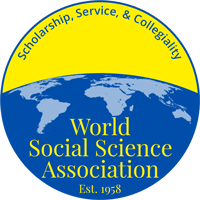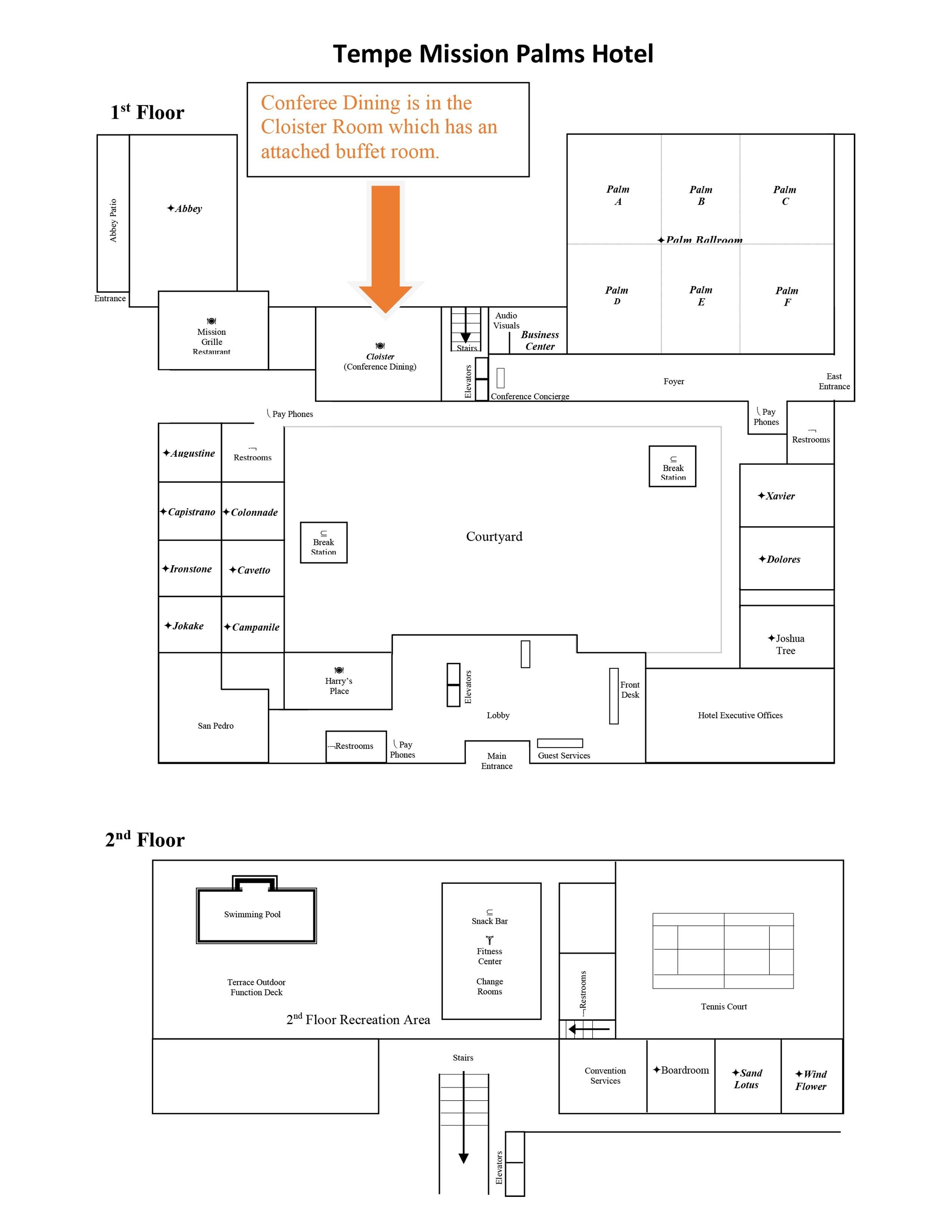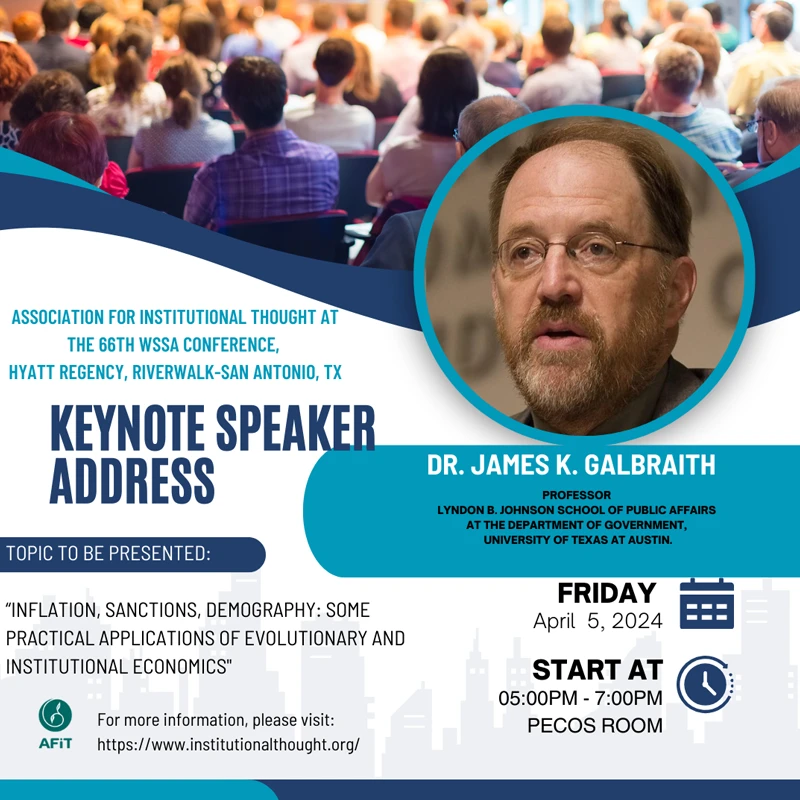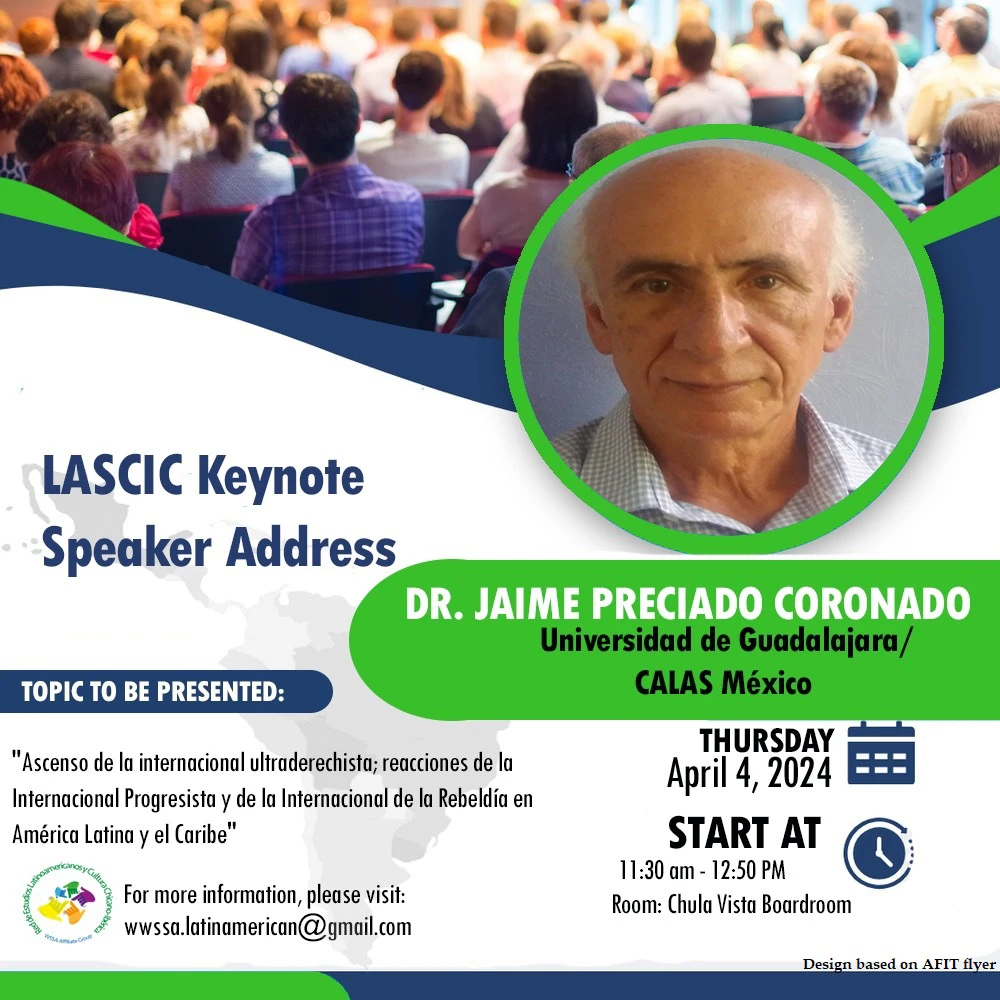
African/African American Studies
| Week 14 |
| Wednesday. 03 April, 2024 | |
| 6:00 PM - 7:30 PM |
WSSA Welcoming ReceptionAll Attendees Invited
WSSA Recepción del presidente
Se invita a todos los asistentes |
| Friday. 05 April, 2024 | |
| 7:00 AM - 9:00 AM |
WSSA Breakfast & Give BackDuring this break we will be asking for donations to the local food bank. |
| 11:15 AM - 1:00 PM |
WSSA President's LuncheonThis is a ticketed event. During this break we will be asking for donations to the local food bank. |
| 11:30 AM - 12:50 PM |
AAAS-01 Contestations And Conflicts In African & African American SocietyCoordinator: George Kieh, Ph.D.
Moderator: Lynette N. Stewart, SUNY Empire State University
The Insurgency in Cameroon’s Two Anglophone Regions |
| 2:30 PM - 5:30 PM |
RAS-03 San Antonio Food Bank's Urban Farm FieldtripField Trip to the San Antonio Food Bank's Urban Farm at Mission San Juan
The San Antonio Food Bank’s farm at Mission San Juan is actually on a National Park site. All of the San Antonio Missions, besides the Alamo, are run by the National Park System, and ours is an unusual land use agreement where we’re able to cultivate on some of its land. When the Spanish colonists arrived and established the missions almost 300 years ago, they started farming that land using acequias, which were diversion ditches inspired by Roman and Moorish irrigation techniques. We continue the same tradition by farming this land, where a portion is irrigated using the historic methods of the Spanish and the indigenous. We also focus on cultivating more drought tolerant crops that can withstand rising temperatures. What food we grow ends up going to the community in South Texas that needs it through our Food Bank distribution programs. |
| 2:45 PM - 4:15 PM | |
| 5:00 PM - 7:00 PM |
AFIT - Keynote Speaker Dr. James GalbraithDr. James K. Galbraith, Ph.D.
Inflation, Sanctions, Demography: Some practical applications of evolutionary and institutional economics.
Lloyd M. Bentsen Jr. Chair in Government/Business Relations and Professor of Government
|
| 8:00 PM - 9:00 PM |
A Facebook ConcertCoordinator: Lisa Ossian
The Kinkaider's Song: A Homesteader Ballad from the Nebraska Sandhills
- Tom Isern, North Dakota State University
The family of prairie folksong tracing lineage to the gospel hymn, “Beulah Land,” is prolific. “Beulah Land” is about a place, the blissful afterlife. Prairie singers borrowed its melody and motifs to localize them to their own places on the plains, sometimes as joyful paeans to a bountiful country, other times as sardonic commentaries on a hard land. “The Kinkaider’s Song” is exceptional in that it is traceable to a particular time and place: the Kinkaider picnic of 16 August 1911, a gathering of homesteaders at the Will Davis grove, a seven-year-old tree claim near Anselmo, in northern Custer County, Nebraska. Fourteen-year-old Matilda Matthews was there and wrote for a regional newspaper, the Atkinson Graphic, “We composed a song, ‘The Kinkaider’s Song,’ and sang it.” The song resounding through the Davis grove in 1911 arose from the historical circumstances of the Kinkaid Act of 1904, which allowed homesteads of a full section, 640 acres, rather than a quarter-section, 160 acres. Its sponsor and heroic proponent, Congressman Moses P. Kinkaid, was present when the Kinkaiders sang their anthem in his honor. From there the song passed into oral tradition and the mysterious canon of Great Plains balladry. Recently discovered, the original text and circumstances of “The Kinkaider’s Song” illustrate the capacity of digitized source materials to move ballads previously anonymous into the realm of known authorship and context--an important development in the interpretation of Great Plains folksong. |
| Saturday. 06 April, 2024 | |
| 11:30 AM - 12:50 PM |
AAAS-02 Education, Knowledge-Building And Nationhood In Africa And The DiasporaCoordinator: George Kieh, Ph.D.
Moderator: Ishmael Munene, Northern Arizona University
The Educational Impact of Foreign-Themed Literature v. Local-Themed literature on a Child's Educational Growth Journey: A Case Study on Nigerian students |
| 6:30 PM - 8:00 PM |
WSSA President’s ReceptionAll Attendees Invited
WSSA Recepción del presidente
Se invita a todos los asistentes |





